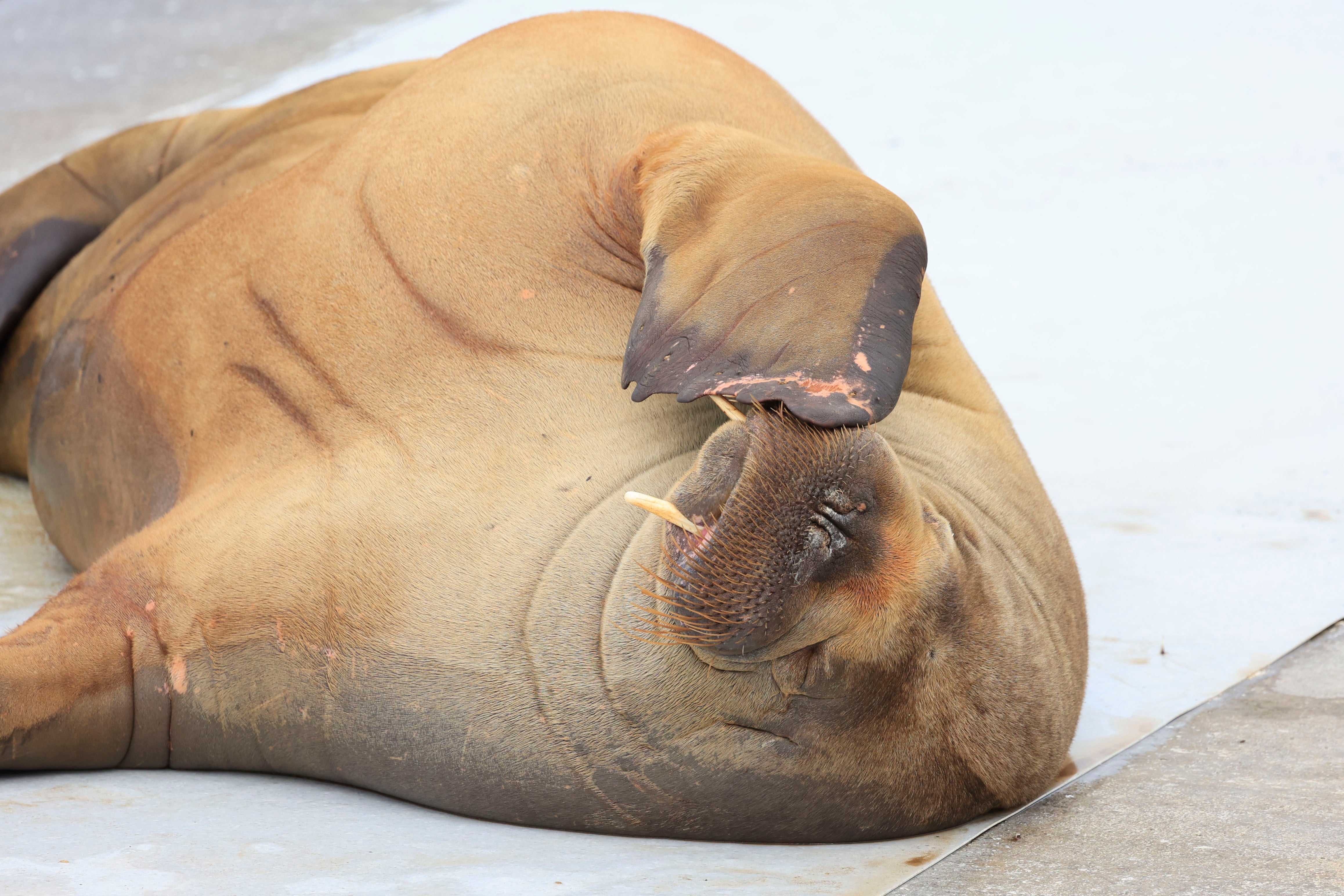Freya the walrus is put down by Norwegian officials after crowds of people refuse to stop harassing her
Freya was first spotted in Norway in mid-July, and attracted increasingly large numbers of visitors despite repeated police and government warnings
Your support helps us to tell the story
From reproductive rights to climate change to Big Tech, The Independent is on the ground when the story is developing. Whether it's investigating the financials of Elon Musk's pro-Trump PAC or producing our latest documentary, 'The A Word', which shines a light on the American women fighting for reproductive rights, we know how important it is to parse out the facts from the messaging.
At such a critical moment in US history, we need reporters on the ground. Your donation allows us to keep sending journalists to speak to both sides of the story.
The Independent is trusted by Americans across the entire political spectrum. And unlike many other quality news outlets, we choose not to lock Americans out of our reporting and analysis with paywalls. We believe quality journalism should be available to everyone, paid for by those who can afford it.
Your support makes all the difference.Freya, the 600kg walrus who lounged away her summer in Oslo Harbour, has been euthanised by the authorities in Norway after they concluded that the sea animal posed an untenable risk to the crowds of people who thronged to see her.
The operation was conducted in a humane way by personnel from the fisheries department, officials said.
The walrus, named after the Norse goddess of beauty and love, quickly gained popularity among locals for sinking several boats in the harbour with her efforts to climb up on them to sunbathe.
Her antics drew increasingly large crowds, with people making a beeline to take pictures and swim with her despite repeated warnings about their own safety and the animal’s wellbeing.
The fisheries ministry had shared a photograph of a large group of people, including children, armed with cameras and standing dangerously close to the animal.
Frank Bakke-Jensen, the director general of fisheries, said the decision to put down Freya was taken after "an overall assessment of the continued threat to human society".
"Despite repeated calls, the public did not follow recommendations to keep their distance from the walrus, and dangerous situations arose on several occasions."
It added that through on-site observations, it was made clear that the public has "disregarded the current recommendation to keep a clear distance to the walrus".
“Therefore, the directorate has concluded, the possibility for potential harm to people was high and animal welfare was not being maintained.”
Mr Bakke-Jensen in his statement said that other options such as moving the animal elsewhere were considered, but the authorities concluded it wasn’t a viable option.

“We have sympathies for the fact that the decision can cause a reaction from the public, but I am firm that this was the right call,” Mr Bakke-Jensen said.
“We have great regard for animal welfare, but human life and safety must take precedence.”
“We understand that this decision may create reactions among the public, but I am confident that this was the right decision,” he added.
After leaving her native arctic, the walrus was sighted in Denmark, Germany and Scotland, before settling on Oslo Harbour. She was first spotted in Norway in mid-July.
Walruses are a protected species and the Norwegian officials said they had hoped Freya would leave of her own accord.




Join our commenting forum
Join thought-provoking conversations, follow other Independent readers and see their replies
Comments